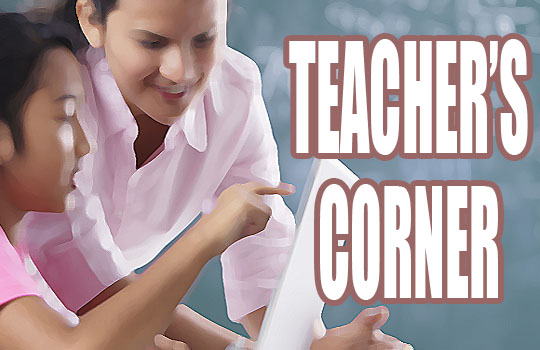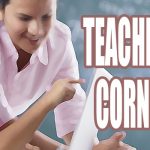By VICTORIA SUSAN A. ORIENTE
Head Teacher III, Sta. Filomena Integrated School
San Mariano I District, San Mariano, Isabela
EDUCATION plays an important role in our country. As enshrined in the 1987 Constitution, it is inevitable that is must be given the highest allotted budget because of its vital role and function in the development of our country.
 The Department of Education (DepEd) is the leading agency towards the provision of basic education in the Philippines. It encompasses not just the total learning process of its clienteles but also the persons behind the success of the said process. They are the persons in uniform. They are the resilient teachers.
The Department of Education (DepEd) is the leading agency towards the provision of basic education in the Philippines. It encompasses not just the total learning process of its clienteles but also the persons behind the success of the said process. They are the persons in uniform. They are the resilient teachers.
DepEd Envisions to continuously improve itself to better serve its stakeholders. These stakeholders refer to the parents, officials, heads and other persons in the community. The agency always find time and effort to train and mold teachers to be competent and proficient in order to realize the said vision. Seminars, trainings, workshops and other related events are planned and conducted for the teachers to improve professionally and personally.
With the advent of demanding changes brought about by 21st century trends and issues paradigm shift in learning and development for teachers was established. It is from the mastery of content to acquisition of skills. Teachers need to cope up with these changes. In order to provide and offer quality education, DepEd established the Result-Based Performance Management System (RPMS) for all its personnel.
This RPMS was actually derived from the Strategic Performance Management Systems (SPMS) of the Civil Service Commission (CSC). DepEd’s adoption of this system has significantly changed the landscape of the teaching process in the country.
The salient feature of the RPMS is that there are four important Key Result Area (KRA) with objective pre-assigned for use and implementation by each personnel for the school year. The KRA, include Student Achievement; Curriculum, Content and Pedagogy; School, Home and Community Link-ages; and Personal Social Growth and Professional Characteristics. These features highlight the role of the teacher not just inside the classroom but also in his/her involvement “beyond” the classroom.
Understandably, RPMS is not just for teachers, it is also for head teachers, master teachers and other non-teaching and teaching related personnel in the schools and offices under the DepEd. With the emergence of RPMS, it is becoming clear that learning is a two-way process. Teachers do not just teach, they also learn from the way they teach. They have to keep on learning in order to improve themselves.
In the monitoring of the systems implementation, teachers are observed at least once in every quarter. This is being conducted ideally by the principal, head teacher and/or master teacher who are also referred to as raters.
In the classroom observation, the raters/observers first look into the teacher’s competence on Content Knowledge and Pedagogy. Under the first KRA, this measures the knowledge of teacher, about a particular subject matter. “We cannot give what we don’t have,” others claim. This means that mastery of the subject matter is very important. A learner will never understand a topic if a teacher himself/herself cannot understand it. During class-room observations, raters/observers assess whether the teacher is knowledgeable about the topic he/she is discussing. Pedagogy means how a teacher delivers the lesson. It refers to his/her teaching approaches, strategies and methods. It is how the content is being transferred to the learners. It is how the teachers will make the topic clear to his/her learners. Hence, the teacher’s development of the lesson is also being observed.
Also being considered in KRA 1, is on how teachers relate topics in real life. Learners also internalize the importance and relevance of the things they learn into the outside world.
If KRA 1 emphasizes the importance of the teacher’s mastery of subject matter, the second area is about classroom management. A classroom is like his/her community. It is composed of different individuals with different personalities and attitudes. Teacher’s patience may be tested. They will handle different behaviors in teaching a particular subject matter. During class observation, raters will observe and monitor the way a teacher maintains a condu-cive learning environment. This may include the way he/she manages seating arrangement, submission of papers, noise and trouble, if any. It may be disheartening when a teacher knows everything about his/her lesson but is not able to maintain an orderly and appropriate learning activity in class.
As KRA 3 is about Curriculum and Planning, it focuses on how a teacher formulates learning objectives based from curriculum and teaching guides. The raters will also evaluate whether a teacher can achieve his/her desired learning outcomes or objectives.
In the last KRA, Assessment and Reporting, teachers will be evaluated on how he/she creates and develops assessment tools like quizzes, examinations and other forms of summative assessment. This is also referred to as the process of giving feedback to one’s learning. Teacher’s art of questioning may also be observed.
In addition to the above mentioned, four key reform area, a teacher will also be evaluated based on how he/she performs as a member of the community. His/her linkages, partnerships activities, is any, in the place where he/she belongs to have also a great impact on his/her performance as a teacher.
RPMS tool is fun, exiting, and thrilling. When done religiously by teachers of respective career paths, these will become effective tools for assessment of teaching practice, professional interaction and continuous improvement.
Banking on teachers quality is an overwhelming work, but on a positive and rewarding continuum. The rigor on RPMS matches the need to strengthen teacher quality in the Philippines. In keeping with improving teacher quality is the need to upgrade assessment tools for teachers. The mission is to make teachers in their best versions.



Comments are closed.